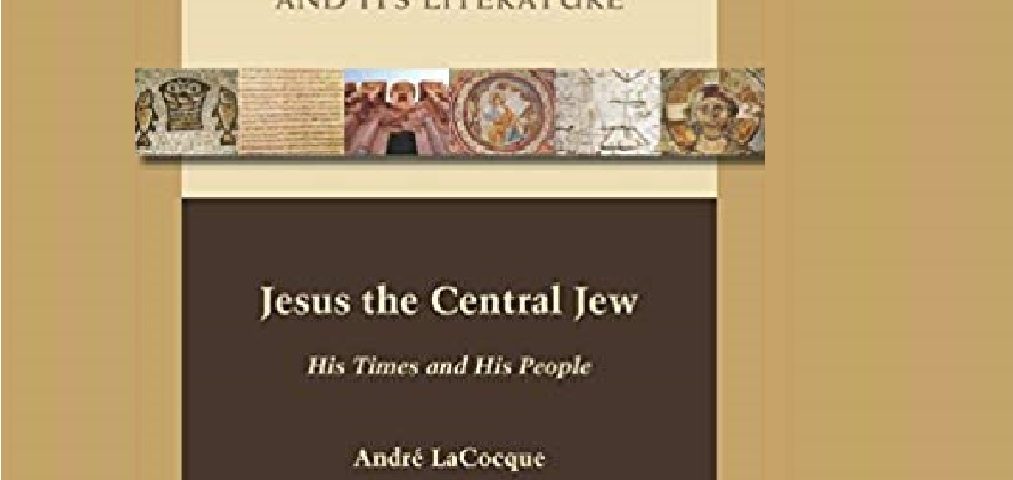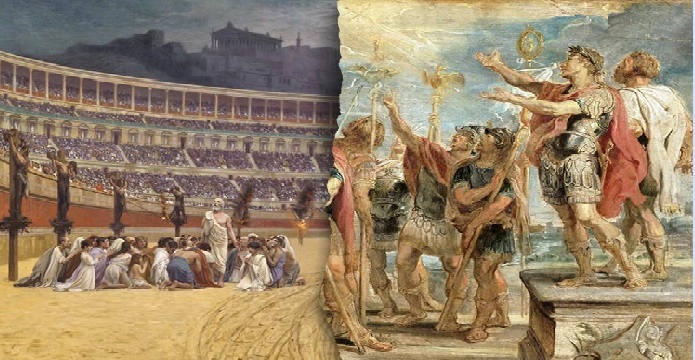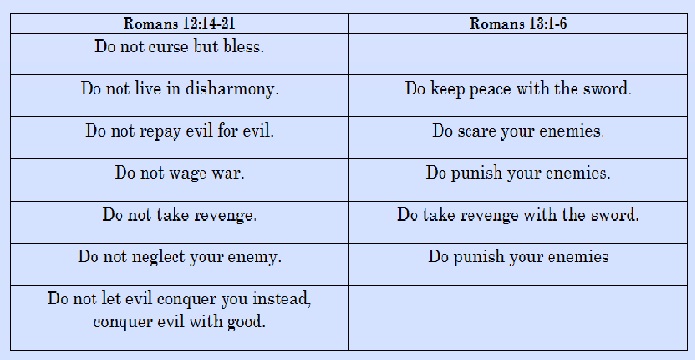by LaCocque, pages 95-6.
Jesus claimed to be (or to become) the ultimate manifestation on earth of the kingdom he heralded: he inaugurated the realm of the eschatological torah, which is characterized by unconditional love, a love independent of time and space and subject neither to opportunity nor to any legal limitation. Such love extends—for the first time and in a unique way in Jewish literature[1]—to embrace even one’s enemy.[2] Aside from Jesus, no one has gone further than this regarding the unconditionality of love, and the truth of the matter is, no one else can, because he paid the ultimate price for it.[3] Jesus’s logion about the love of the enemy is found in Matt 5:44 (//Luke 6:27–28, 32-36). At its basis is Lev 19:18, on the love of the neighbor. As God’s love is unconditional, so must be human love. To the authenticity of this logion militate not only the criterion of discontinuity, as we just saw, but also the abruptness of the command. This discontinuity is clear when we compare the saying with the Hebrew Bible, the Dead Sea Scrolls, the Pseudepigrapha, Philo, Josephus, and the rest of the New Testament testimony (with the exception of Rom 12:9-21 (see esp. v. 14); cf. Matt 5:44; Luke 6:28 [but without echo of the love of enemy]). To be added to this is the criterion of coherence.[4]
The license to hate one’s enemy—Matt 5:43 and parallels, contradicting Exod 23:4-5—was not without qualifications. Deuteronomy 25:17-19 declares the Amalekites enemies forever to be hated. The Qumran scroll IQM says that one must hate the sons of Belial, sons of darkness. The foe to be rejected is the enemy of God, “the haters of God” in Ps 139:21–22. Jesus’s commandment is to love my enemy, not God’s enemy. Jewish tradition recalls that God has created all people in his image (see Gen. Rab. 24; Pesiq. Zutra on Num 8; ARN 16:32 says, “Love all—and hate the heretics, the apostates and the informers.”)
[1] In T. Zeb. 6:8, we find an exhortation to love the strangers; in T. Jos. 18:2, to pray for the evildoer; in t. B. Qam. 9:29-30, to forgive even the offender who does not relent. Jesus’s commandment starkly contrasts with the later composition of the Mishnah (ca. 200 CE). Here, any new or unique event is readily absorbed into unchanging categories. The uniqueness is illusory, for the event has already occurred before, but in a different form.
[2] See also Paul and Peter on this: Rom 12:14, 17-20; 1 Thess 5:15; 1 Cor 4:12; 1 Pet 3:9.
[3] Buber concludes, “Nowhere else is love to man precisely made the presupposition of the realized sonship to God as here” (Two Types of Faith, 76).
[4] See, e.g., “Let the dead bury their dead”; “Whoever loses his life will save it.”




